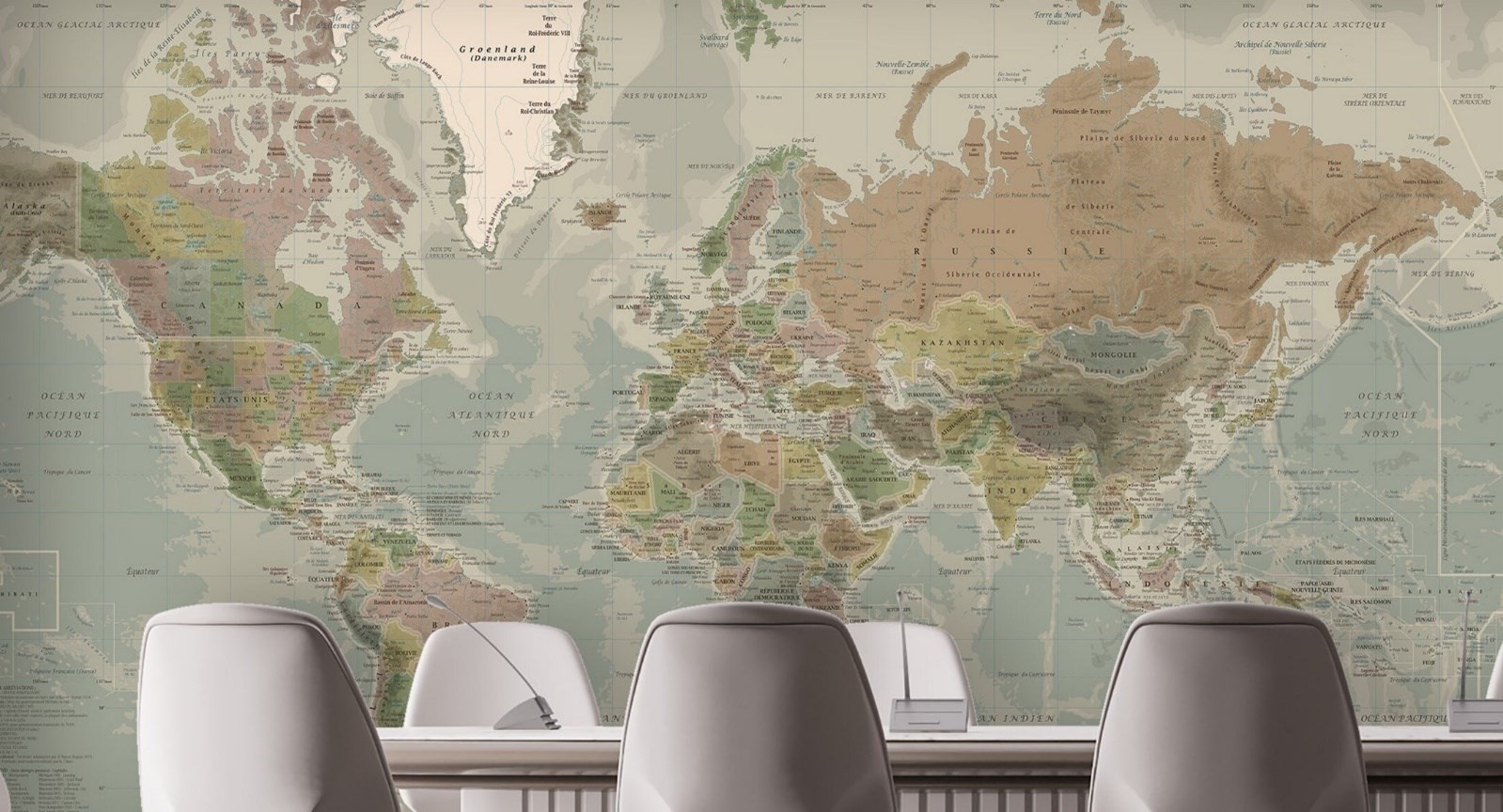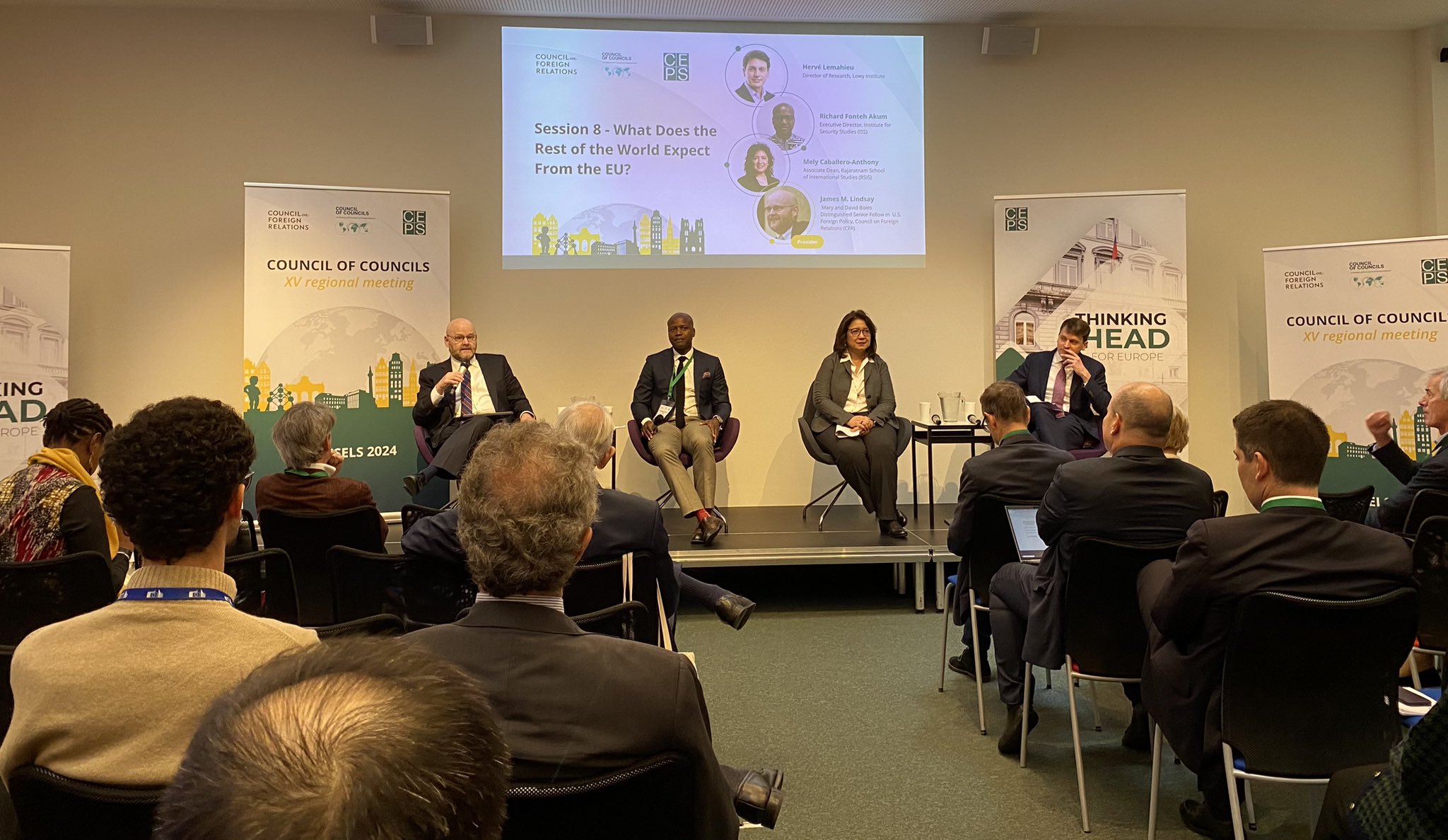
|
|
 |
|
According to the closing panel of the 15th regional meeting of the Council of Councils, expectations are: As it sets a new 5-year mandate, the EU faces high expectations—from promoting human rights and sustainable trade to managing relations with major powers like the U.S. and China. This gathering brought insights from top think tanks worldwide, offering a reality check on the EU’s global ambitions amidst current geopolitical tensions. |
|
|
 |
 |
 |
The EU’s evolving role as a geopolitical actor with:
@issafrica Caballero-Anthony |
|
| A role for Europe in the world?
The EU seems to be mainly reactive, has little sovereignty to act as an independent (hard) power and only functions effectively if the member states allow it to. Only in times of crises does the Union move quickly in the process of progress.
|
|
| Combat excessive polarization
The Treaty on the Functioning of the European Union (TFEU) prohibits discrimination on grounds of nationality. It also enables the Council of the European Union to take appropriate action to combat discrimination based on sex, racial or ethnic origin, religion or belief, disability, age or sexual orientation (Article 157 TFEU). |
| References
1. An international initiative to connect leading foreign policy institutes from around the world in a dialogue on issues of global governance, multilateral cooperation, and geopolitics. The defining foreign policy challenges of the twenty-first century are global in nature. To help direct high-level international attention and effective policy responses to these threats and opportunities, the Council on Foreign Relations (CFR) has created a Council of Councils (CoC). The CoC is composed of twenty-seven major policy institutes from some of the world's most influential countries. It is designed to facilitate candid, not-for-attribution dialogue and consensus-building among influential opinion leaders from both established and emerging nations, with the ultimate purpose of injecting the conclusions of its deliberations into high-level foreign policy circles within members countries; 2. Russia and the European Union: 2. ‘What do We Want from Europe?’ / ‘Three Questions concerningNew Principles in Bilateral Relations’ (Valdai Discussion club, report Moscow 2016); 3. In fields as energy, economy, agriculture, pollution, climate of the weather, human migrations, and changes of an entire culture or civilization; 4. Could Trump Be Good for Europe? (Stimson, Sept. 27, 2024),More Pillars Needed: Ten Options for Europe to Improve NATO’s Nuclear Deterrence(Stimson, Oct. 2, 2024) and ‘Why the U.S. Presidential Election Matters for Europe’(Global Memo by SWP, CEPS, PISM, and Chatham House, Sep 03, 2024); 5. EU strategic agenda - Consilium (europa.eu); 6. New Diplomacy Project’: ‘Assessing the ‘Trump Risk’ to European Security’ 7. Participating in the UN Agenda 2030. These shared goals and has included elements that aim to build peaceful societies, provide justice, help rebuild affected societies, and promote accountability and the general welfare of the world. 8. Pegasus September 2024 (cauxroundtable.org); 9. In addition to non-permanent membership for African countries, the US supports the addition of two new permanent seats for African countries on the powerful U.N. Security Council. However, Washington opposes giving veto power to the African countries that would hold the two permanent seats because the veto makes the Security Council’s work “dysfunctional. |